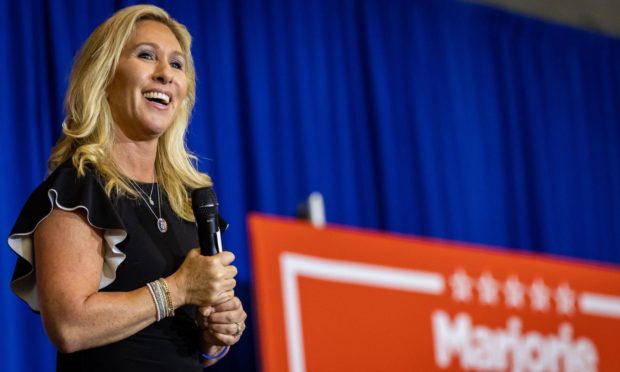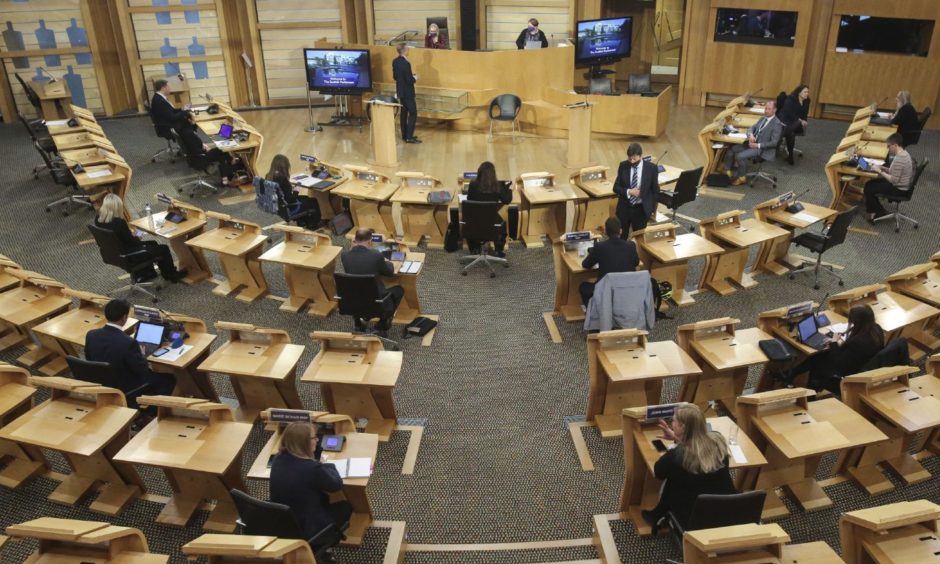Many of us were busy obsessively watching CNN and John King’s magic wall to find out the outcome of the US presidential election in November.
Most of us, however, were probably not paying quite as much attention to the Senate results that were coming through on the same day.
While the US presidency is of global importance, the legislative branch controls much more of the domestic agenda – and if a president can’t get the representatives of the people on board with his plans, they’re dead in the water.
The US Senate is an odd institution. You can, as is the case right now, achieve majority status with the 100 seat chamber split 50-50 between Democrats and Republicans, and the vice president breaking any ties. But that doesn’t give you any real power, at least over the more significant decisions.
To pass anything of substance, to overcome the filibuster – an arcane mechanism to prolong debate – you need to get to 60 votes. And achieving 60 votes on anything remotely controversial is as likely as Partick Thistle winning the Scottish Cup. Theoretically possible, extraordinarily unlikely.
Compromise, consensus and bipartisan politics are alien in the US
Why so hard? Well, the Senate is a pretty conservative institution, and the rules are designed so that decisions require substantive agreement. Parties can’t just ram through their own agenda, they have to work together.
Parties in the US can’t just ram through their own agenda, they have to work together
This requires compromises – often meaning that no one is happy with the outcomes. The Civil Rights Acts of 1957 and 1960 were diluted to the point of ineffectiveness so that Southern Democrats allowed them to pass the Senate. It was only with Lyndon Johnson’s presidency that a substantive Civil Rights Act was passed in 1964.
Today’s Senate – like today’s America – is so polarised that compromise, consensus and bipartisan politics are as alien as ET.
Divisions were substantial long before Trump
Polarisation is not new in the US, but has become much more explicit in recent years. While the election of Donald Trump as president in 2016 is largely seen as a watershed moment, divisions were substantial long before he took office.
Disillusionment with George W Bush’s presidency – on the left and the right – led to the selection of a freshman black senator from Illinois as the Democratic candidate in 2008. His opponent selected a fundamentalist Christian Alaskan with limited knowledge of global politics to be his running mate.
The Tea Party movement rose up in opposition to President Obama’s banking bail outs. We had Bernie Sanders, Elizabeth Warren, AOC and “The Squad” on the left; Ted Cruz, Josh Hawley, Marjorie Taylor Greene and QAnon on the right; plus Sean Hannity, Tucker Carlson and Fox News in the media. All adding to centrifugal forces, pulling politics away from the centre and making moderate politicians look weak.
The result? No compromises. No consensus. And no way to get to 60 votes.
Political polarisation in Scotland
Of course, we’re not immune to polarisation in Scotland. The constitutional question dominated the Scottish election in May.
The SNP remain a minority government, with 64 of the 129 seats in Holyrood – though with the Greens’ Alison Johnstone in the presiding officer’s chair, the chamber has an equal split between government and opposition, much like the US. And, as a result of that status, the SNP will have to reach out to opposition parties to legislate.
They do have the advantage of the pro-independence Greens to appeal to, and thereby have less of a requirement to try to bridge the constitutional gap and get pro-Union MSPs to support their legislation. Which is probably just as well for them, since the barnstorming rhetoric on both sides of the debate suggests little space for compromise.
Scotland’s politicians have more compassion
Polarisation makes for partisanship; cross-party consensus falls by the wayside. However, I’m not ready to write off compromise just yet.
Far from the extremism of US representative Marjorie Taylor Greene – who recently compared the wearing of face masks on the floor of Congress to the Holocaust – we see a bit more compassion in Scotland’s politics.
When SNP MSP Ruth Maguire went public with her cancer diagnosis, Conservative MSP Jamie Greene offered his own help and that of his office for both professional and personal assistance.
When you take away the overblown posturing and rhetoric, much more of our politics features dedicated public servants who simply want to help. Much of this goes on behind the scenes, when the cameras are off and constitutional soundbites are not required.
If only we could dial down the extreme division, perhaps we would see this side of our leaders a bit more.
Dr Malcolm Harvey is a lecturer in politics at the University of Aberdeen




